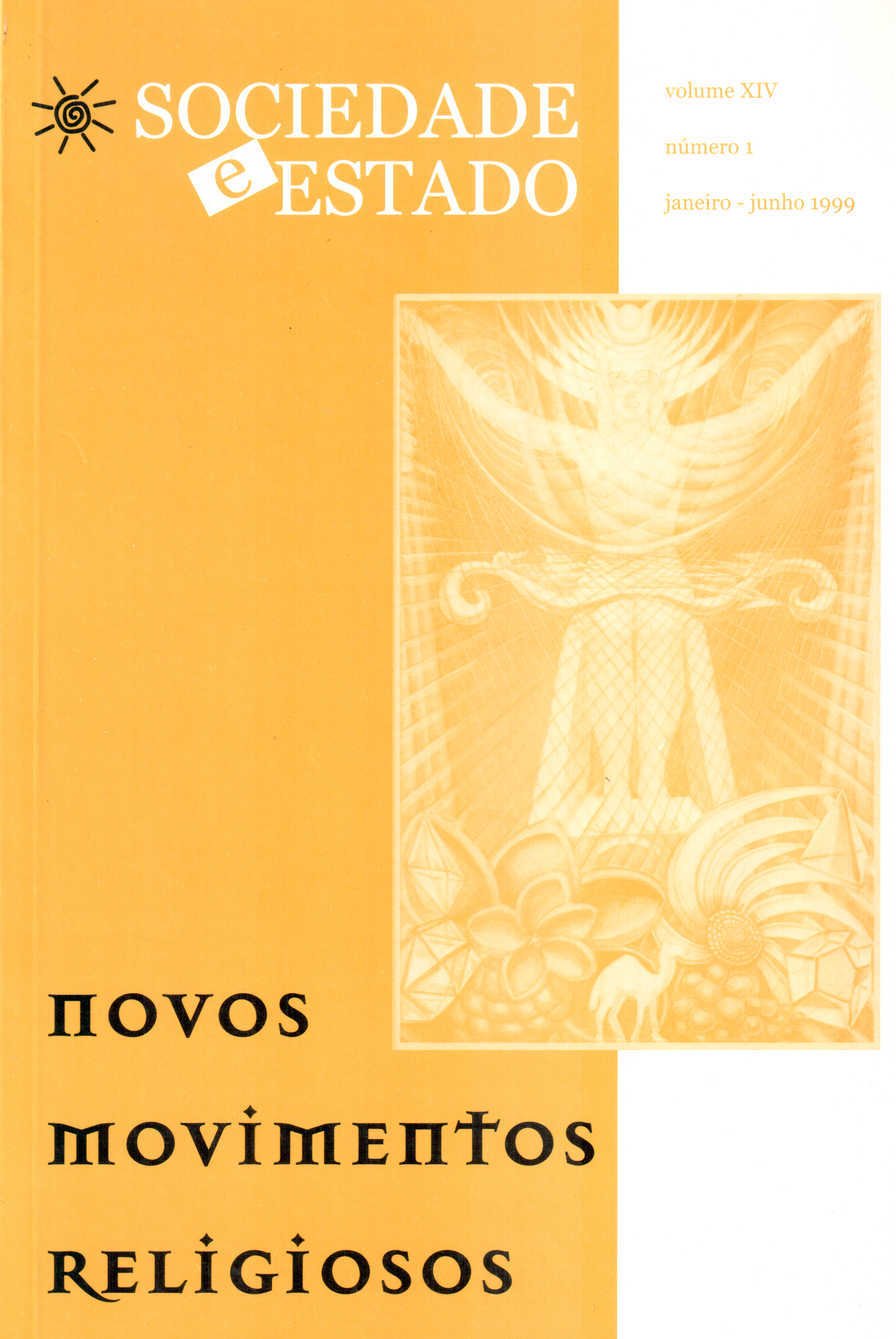A interpretação sociológica do esoterismo contemporâneo
Keywords:
esoterismo, racionalidade, irracionalidade, magia, simbólico.Abstract
Social scientists have explained the increasing popularity of esoteric practices in the last decades as a reaction to the preponderance of instrumental rationality in modern industrialized societies. Many scientists consider this development as a return to magic and irrational ways of thinking and acting, which are not able to produce predictable results. In this article we will present anthropological investigations of traditional magic rituals, and psychological and social-scientific interpretations of esoteric practices which suggest a different view: traditional magic and esoteric methods are based, on the one hand, on symbolic actions which direct the human mind towards certain direction and thus, under certain circumstances, are able to produce the desired effect. On the other hand, esoteric techniques make use of exstasis and body-control techniques by means of which particular psychic energies can be provoked. In the concluding section we will discuss the use of esoteric methods by the New Age movement. We will argue that both principles of esotericism, symbols and symbolic actions, and techniques of ecstasy and control of bodyfunctions, can have positive effects on the human mind and body, if the respective techniques are applied in a proper way.
Downloads
References
Adorno. Theodor W. (1970). The Stars down on Earth. Frankfurt/M.: Gesammelte Schriften, Band 9.2.
Bandeira, Lourdes et alii. (1998). As mediações entre os novos significados e os adeptos nos grupos místico-esotéricos no Distrito Federal. Trabalho apresentado nas VIU Jornadas sobre Alternativas Religiosas na América Latina. São Paulo: Universidade de São Paulo, de 22 a 25 de setembro.
Barker, Eileen (1989). New religious movements. London: E. Mellen.
Berger, Peter, Berger. Brigitte & Dreitzel, Hans Peter (1973). The homeless mind. New York: Random House.
Bochinger, Christoph (1994). New Age und modeme religion. Muenchen: Chr. Kaiser. Campbell, Joseph (1992). As máscaras de Deus: mitologia primitiva. São Paulo: Palas Athena. Cassirer, Ernst (1972). Linguagem e mito. São Paulo: Perspectiva.
Durkheim, Emile (1989). As formas elementares de vida religiosa. São Paulo: Paulinas.
Eliade, Mircea (1998). O xamanismo e as técnicas arcaicas do êxtase. São Paulo: Martins Fontes.
Evans-Pritchard, E. E. (1978). Bruxaria, oráculos e magia entre os Azande. Rio de Janeiro: Zahar.
Fraas. H. Juergen (1990). Die religiositat desMenschen. Goettingen: UTB.
Frazer, James George (1982). O ramo de ouro. São Paulo: Círculo do Livro.
Gehlen, Arnold (1964). Urmensch und Spãtkultur. Frankfurt/M: Fischer.
Giddens, Anthony (1991). As consequências da modernidade. São Paulo: Editora da Universidade Estadual Paulista.
Gill, Robin, Hadaway, C. Kirk e Marler, Penny Long (1998). “Is religious belief declining in Britains?”in Journal for the Scientific Study ofReligion, 37/3, pp. 507-516.
Gross, Werner (1996). Psychomarkt - Sekten - Destruktive Kulte. Bonn.
Gugenberger, Eduard & Schweidlenka, Roman (1992). Missbrauchte sehnsuechte. Esoterische wege zum heil. Wien: Verlag fuer Gesellschaftskritik.
Haack, Wilhelm (1993). Europasneuereligionen. Sekten-Gurus-Satanskult. Freiburg: Deutscher Taschenbuchverlag.
Hanegraaff, Wouter J. (1996). “New Age Religion and Western Culture Esotericism” in The mirror of secular thought. New York: E. J. Bril; Leiden: Koeln.
Hemminger, Hansjõrg (ed.) (1987). Die riickkehr der Zauberer. New Age. Eine Kritik: Reinbek bei Hambur.
Hervieu-Leger, Daniele (1993). “Present-day emotional renewals. The end of secularization or the end of religion?” in Swatos Jr., William H. (ed.). A future for Religion? London: Newbury Park - Delhi, pp. 129-148.
Hollinger, Franz (1996). “Volksreligion und Herrschaftskirche. Die Wurzeln des religioesen Verhaltens” in Westlichen Gesellschaften. Opladen: Leske & Budrich.
-------------------(1999). “Astrologie, yoga und politik. New Age und politische orientierungen bei Studentlnnen” in Soziale Welt, 50/1, pp. 51-66.
Jung, Carl Gustav (1969). El hombre y sus símbolos. Madrid: Aguilar.
K losinski, Gunter (1996). Psychokulte, was sektenfurjugendliche so attraktiv macht. Muenchen: C. H. Beck,.
Knoblauch, Hubert (1991). “Das unsichtbare zeitalter. ‘New Age’, privatisierte Religion und Kultisches Milieu” in KôlnerZeitschriftfur Soziologie undSoziologie und Sozialpsychologie, 41/4, pp. 504-525.
---------------------- ( 1993). ‘“Neues Paradigma’ oder ‘NeuesZeitalter’. FritjofCapras moralisches Unternehmen und die ‘“New Age-Bewegung’” in Kõlner Zeitschriftfitr Sozialpsychologie und Sozialpsychologie. Sonderheft 33, pp. 249-270.
Küenzlen, Gottfried (1987). “Das unbehagen nader modeme: Der kulturelle und gesellschaftliche Hintergrund der New Age-Bewegung” in Hemminger, Hansjõrg (ed ). Die Riickkehr der Zauberer. New Age. Eine Kritik. Reinbek bei Hamburg: Rowohlt, pp. 187-222.
Lévi-Strauss, Claude (1985). Antropologia estrutural. Rio de Janeiro: Tempo Brasileiro.
Lorenzer, Alfred (1992). Das konzil der buchhalter. Frankfurt: Fischer.
Mauss. Marcel (1974). Soziologie und anthropologie 1. Frankfurt: Suhrkamp.
Me Guire, Meredith B. (1987). “Ritual, symbolism and healing” in Social compass 34/4, pp. 365-379.
Mongardini, Carlo (1987). “Über dis soziologische bedeutung des magischen denkes” in Zingerle, A, & Mongardini, C. Magie undModeme Berlin, Gudrian & Hoppe.
Runggaldier,E. (1996). Philosophie der esoterik. Berlin: Kohlhammer.
Ruppert, Hans-Jurgen (1987). “Aites Denken auf neuen Wegen: New Age und Esoterik” in Hemminger, Hansjorg (ed.). Die ruckkehr der zaubereer, New Age, Eine Kritik. Reinbek bei Hamburg: Rowohlt, pp. 60-84.
Siqueira, Deis (1999). “Práticas místicas e esotéricas na capital do Brasil: A construção do sujeito — objeto de investigação” in Série Sociológica n? 158. Brasília: Universidade de Brasília.
Stark. Rodney, Bainbridge, William Sims (1985). The future of religion. Londres: Berkeley; Los Angeles: University of California Press.
Vivelo, Frank Robert (1981). Handbuch der kulturanthropologie. Stuttgart: Klett-Kotta.
Weber, Max (1978). Hinduismus and Buddhismus. Tuebingen: J. C. B. Mohr.
------------------- (1982a). “A ciência como vocação” in Ensaios de sociologia. Rio de Janeiro: Zahar.
------------------(1982b). “Rejeições do mundo e suas direções” in Ensaios de sociologia. Rio de Janeiro: Zahar.
------------------(1991). Economia e sociedade: fundamentos da sociologia compreensiva. Brasília: Editora Universidade de Brasília
Downloads
Published
How to Cite
Issue
Section
License
Copyright (c) 2022 Revista Sociedade e Estado

This work is licensed under a Creative Commons Attribution-NonCommercial 4.0 International License.




.jpg)



















